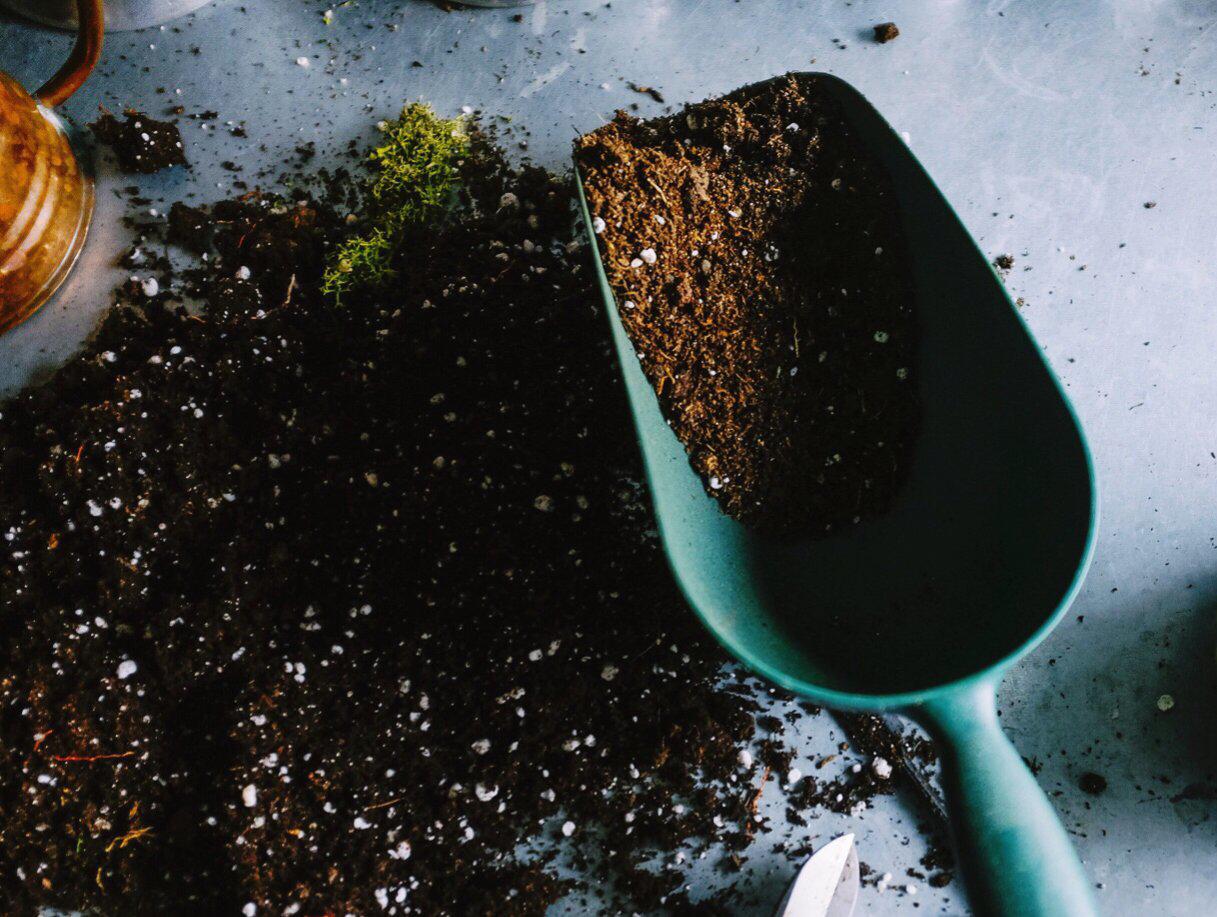
This week we asked y'all about your garden questions and boy did you share! We received such a huge response that we decided to turn our garden Q & A into a few blog posts to answer your questions! This week we are going to talk about soil, let's dig in! ;)
Soil is quite literally the foundation of your garden, and based off your responses, we can tell you are well aware, no soil is created equal. We are going to share some of favorite natural DIY solutions for enriching your garden soil! If you have specific issues with your soil we recommend checking out your local nursery or a community gardening group, and know that there is always an organic solution to your soil's needs. A soil test is preferred before adding anything to your soil, you can find one at your local nursery or hardware store, or order one here.
Our top recommendation for healthy soil and flourishing plants is to add compost. Compost is known as "black gold" among farmers and rightfully so, it is easily the most critical amendment to all forms of soil. Compost is simply decomposed organic matter, and is easily produced at home. Compost is heralded as producing veggies that are hardier to disease, higher in nutrition and flavor and require less moisture than veggies that are grown in soil without high levels of organic matter. You can cut down on your family's waste while creating rich food for your garden, we'd love to answer any of your composting questions, so make sure to let us know in the comments below!
Our second secret weapon for gorgeous soil is epsom salt. Epsom salt, also referred to as magnesium sulfate, is easy and safe to add to your garden soil and a small amount can go a long way to assisting your growing. Epsom salt is known to increase plant growth, output, nutrition and flavor all while deterring pests. Probably the easiest way to add epsom salt to your garden is the broadcast method. Simply spread 1 cup for every 100 square feet and mix well into soil. You can also apply about 1 tablespoon at the base of each plant and then water it in if your garden is already established. If you haven't begun your planting you can also soak your root ball in a gallon of water with 1/2 cup of epsom salt dissolved into it.
Number three...egg shells! Egg shells can be fun for your littles to collect and spread in your garden, they provide calcium to your soil and are a natural pest deterrent. To add calcium to your soil it is best to till crushed egg shells into the soil in the fall, but they are equally as impressive later in the year, spread around the base of your plants as pest control.
And last but not least, used coffee grounds. Coffee grounds are used in a multitude of ways in the garden, as mulch, suppressing weeds, worm food and to deter snails, slugs rabbits and cats. It is important that you are incorporating used coffee grounds in your garden rather than fresh. Fresh coffee grounds can be highly acidic and in most soil situations would be too acidic to add to your soil. Used coffee grounds however are much more neutral and safe for use in composting or soil amending.











